44 organization of the human body worksheet answers
Health Care Coursework Assignment on 23 Worksheet: Body Structure and ... Health Care Coursework Assignment on 23 Worksheet: Body Structure and Dermatology Terminology and Practical Application Instructions In this worksheet, you will practice defining, spelling, and pronouncing body structure and dermatology terminology. You will also apply these skills with a case study in which you analyze a medical record. Organizing Your Social Sciences Research Paper - University of Southern ... Yields an answer that is unexpected and not obvious rather than inevitable and self-evident; Provokes meaningful thought or discussion; Raises the visibility of the key ideas or concepts that may be understudied or hidden; Suggests the need for complex analysis or argument rather than a basic description or summary; and,
Word Craze Answers All Levels - WordCrazeAnswers.com The journey takes place around the world, starting at Departures (levels 1-6), and preceding to Egypt, Morocco (levels 17-44), Greece (levels 45-84) and so on. To solve the levels you have to answer the clues and fill in the letters. Some clues come equipped with photos that aid you in finding the answer faster.
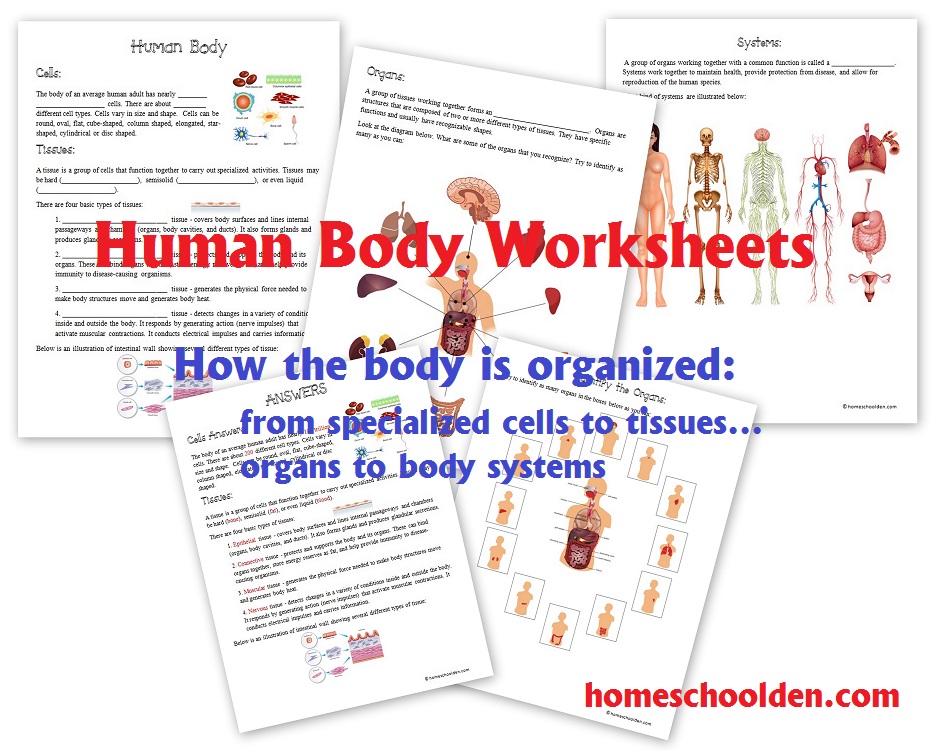
Organization of the human body worksheet answers
Hygiene and Environmental Health Module: 3. Personal Hygiene 3.4.1 Body hygiene (skin care) The body has nearly two million sweat glands. Moistened and dried sweat and dead skin cells all together make dirt that sticks on to the skin and the surface of underclothes. The action of bacteria decomposes the sweat, thereby generating bad odour and irritating the skin. Driving questions to use in your PBL classroom - The Edvocate Spread the loveDriving questions set the purpose for learning and simultaneously capture the student's curiosity. That can be a tall order to fill in any Project-Based Learning (PBL) classroom. In the PBL classroom, groups of student solve complex problems. They gather and analyze facts, look for correlations, and evaluate possible solutions. Along the way, they make mistakes, and they meet ... Anatomy Worksheets for Grades 6-8 - TeacherVision Check out these human body printables to find great teaching ideas for sixth, seventh, and eighth grade science classes. Use the activities below to explore the functions of the endocrine and nervous systems with your students. You'll also find handouts on the cardiovascular, respiratory, and digestive systems.
Organization of the human body worksheet answers. Telomere - Genome.gov A telomere is a region of repetitive DNA sequences at the end of a chromosome. Telomeres protect the ends of chromosomes from becoming frayed or tangled. Each time a cell divides, the telomeres become slightly shorter. Eventually, they become so short that the cell can no longer divide successfully, and the cell dies. Human Cell 3-D. Weegy Get an answer. Weegy.com is the easiest and fastest way to get answers to your questions, by providing a mashup of several technologies including an AI-enabled Q&A knowledgebase and integrated chat with live experts. ... User: a force of 350 n causes a body to move with an acceleration of 10 m/s2 whats the mass of the body . Question. Updated 1 ... 18 Best Growth Mindset Activities, Worksheets, and Questions Take a look at the following free worksheets. Adopt A Growth Mindset. This exercise helps clients recognize instances of fixed mindset in their thinking and actions and replace them with thoughts and behaviors more supportive of a growth mindset. Fact Checking Thoughts Worksheet. N3 (1st Sem AY 2022-2023): Jardeleza_Activity 2 ANSWERS According to Tortora and Derrickson (2014), the components of the 11 organ-systems in the body are: Integumentary System- skin, hair, fingernails, toenails, sweat glands, and oil glands Skeletal System- Bones and joints of the body and cartilages. Muscular System- skeletal muscle tissue Nervous system- brain, spinal cord, nerves
Diploid - Genome.gov Diploid is a term that refers to the presence of two complete sets of chromosomes in an organism's cells, with each parent contributing a chromosome to each pair. Humans are diploid, and most of the body's cells contain 23 chromosomes pairs. Human gametes (egg and sperm cells), however, contain a single set of chromosomes and are said to be ... Human Biology Lab Online | Lab 4 Tissues and Skin Your written description should describe the shape, size, patterns, color and include as much detailed information about it. Continue until all six fabric swatches have been done. This would be comparable to viewing six different histology slides independently. Fabric Swatch 1 Fabric Swatch 2 Fabric Swatch 3 Fabric Swatch 4 Fabric Swatch 5 Human Body for Kids! Trivia Quiz Answer: Liver. The liver is the largest organ within our body. Even if three-quarters of your liver is removed, it will eventually grow back to its full size. 4. Which of these organs is vital for thinking? Answer: Brain. The brain is present in the head. It has three parts: the cerebrum, cerebullum and medulla. Effects of Drug Abuse | HealthyPlace The effects of drug abuse can also include decreasing performance in work or school. This decreased performance may lead to disciplinary action, expulsion or dismissal, creating money problems and possibly even legal troubles. Discontinuing participation in sports and giving up hobbies are other effects of drug abuse. Tracy, N. (2021, December 15).
Neuroscience For Kids Neuroscience for Kids has been created for all students and teachers who would like to learn about the nervous system. Discover the exciting world of the brain, spinal cord, neurons and the senses. Use the experiments, activities and games to help you learn about the nervous system. There are plenty of links to other web sites for you to explore. Organelle - National Human Genome Research Institute Home Definition. …. An organelle is a subcellular structure that has one or more specific jobs to perform in the cell, much like an organ does in the body. Among the more important cell organelles are the nuclei, which store genetic information; mitochondria, which produce chemical energy; and ribosomes, which assemble proteins. Biology for the Logic Stage Student Guide | Elemental Science ... Biology for the Logic Stage leads the middle school student through a study of plants, animal life, and the human body by digging deeper into what was studied during the elementary years.. Foster independently learning in your middle school student! Our Biology for the Logic Stage Student Guide includes all student assignment sheets, sketches, experiment sheets, and blank report pages that ... PAR-22-242: Bioengineering Research Grants (BRG) (R01 Clinical Trial ... the purpose of this foa is to encourage brg applications that: 1) apply a multidisciplinary approach to solve biomedical problems; and 2) develop, integrate, optimize, validate, translate or accelerate adoption of promising tools, methods, and techniques for a specific research or clinical problem in basic, translational, and/or clinical science …
N3 (1st Sem AY 2022-2023): CO, Melissa Joy_Activity 4 Answers 1. Distinguish between somatic and reproductive cell division and explain the importance of each. SOMATIC CELL DIVISION or mitosis: somatic cells, one cell division, produces two diploid daughter cells (2n) with 46 chromosomes each; daughter cells are genetically identical (no crossing over)
What is WRAP? - Copeland Center for Wellness and Recovery The Wellness Recovery Action Plan (WRAP®) is a personalized wellness and recovery system born out of and rooted in the principle of self-determination. WRAP® is a wellness and recovery approach that helps people to: 1) decrease and prevent intrusive or troubling feelings and behaviors; 2) increase personal empowerment; 3) improve quality of ...
Respiratory System Organs and Their Functions - New Health Advisor The three major parts of the respiratory system all work together to carry out their task. The airways (nose, mouth, pharynx, larynx etc.) allow air to enter the body and into the lungs. The lungs work to pass oxygen into the body, whilst removing carbon dioxide from the body. The muscles of respiration, such as the diaphragm, work in unison to ...
r/free_homework_answers - [Get Assignment Help]Step 1 Organize bones ... 437 subscribers in the free_homework_answers community. This is a community for students who need Help with Homework to secure A+ Grades. ... Think about the organization of the bones in the human body and outline three different ways in which the skeletal system is organized. phantomtutors. Comments sorted by Best Top New Controversial Q&A Add ...
[Solved] Human Geography Assignment 5 : r/free_homework_answers [Get Assignment Help]Step 1 Organize bones three different ways. Think about the organization of the bones in the human body and outline three different ways in which the skeletal system is organized. phantomtutors Vote r/free_homework_answers Join • 59 min. ago [Solved] Reading 2 phantomtutors Vote r/free_homework_answers Join • 1 hr. ago
Download File PDF Endocrine System Coloring Workbook Sheet Some of the worksheets for this concept are Grades 6 to 8 human body series en- docrine system, Teachers guide endocrine system grades 3 to 5, The endocrine sys- tem and reproduction, Unit 1 endocrine system grade level, 5 17 endocrine hand- out, The endocrine system, Grades 6 to 8 human body series nervous system, Diges-
Study Session 1 Human Interactions with the Environment 1.1 Relationships between human activity and the environment Our environment means our physical surroundings and the characteristics of the place in which we live. It also refers to the wider natural world of land, sea and atmosphere. Humans have been interacting with their environment since people first walked the Earth.
Access Free Nervous System Concept Map Answer Answer Key Nervous System Concept Mapping Worksheets ... Complete the concept map. Chapter 35, Nervous System (continued) Peripheral Nervous System Sensory division Somatic nervous system Motor division Autonomic nervous system is separated into consists of 20. Circle the letter of each activity that is controlled by the somatic nervous system. a.
Mitochondria - Genome.gov Definition 00:00 … Mitochondria are membrane-bound cell organelles (mitochondrion, singular) that generate most of the chemical energy needed to power the cell's biochemical reactions. Chemical energy produced by the mitochondria is stored in a small molecule called adenosine triphosphate (ATP). Mitochondria contain their own small chromosomes.
Carpal Tunnel Syndrome : OSH Answers - Canadian Centre for Occupational ... Bending the wrist or moving the fingers brings muscles and tendons into action. For example, when a person bends a finger, the tendon moves about two inches. The tendons of the hand are encased in sheaths, or sleeves through which the tendons slide. The inner wall of the sheaths contains cells that produce a slippery fluid to lubricate the tendons.
Top 90+ Tableau Interview Question and Answers in 2022 It contains a mix of questions of all types of difficulty i.e. easy, intermediate and advanced. These Tableau questions and answers will, therefore, help you as a quick study. Here are some of the commonly asked questions: What is Tableau? Explain the different data types of Tableau. What are Measures and Dimensions?
N3 (1st Sem AY 2022-2023): Organization of the Human Body_Study Guide Please read the study guide for the topic Organization of the Human Body. The document contains the essential topics, additional reading materials, and the activities. The short activities are for us to assess your progress in the topic. Make sure you answer it while reading/learning the topic. Hope you'll enjoy the topic
Anatomy Worksheets for Grades 6-8 - TeacherVision Check out these human body printables to find great teaching ideas for sixth, seventh, and eighth grade science classes. Use the activities below to explore the functions of the endocrine and nervous systems with your students. You'll also find handouts on the cardiovascular, respiratory, and digestive systems.
Driving questions to use in your PBL classroom - The Edvocate Spread the loveDriving questions set the purpose for learning and simultaneously capture the student's curiosity. That can be a tall order to fill in any Project-Based Learning (PBL) classroom. In the PBL classroom, groups of student solve complex problems. They gather and analyze facts, look for correlations, and evaluate possible solutions. Along the way, they make mistakes, and they meet ...
Hygiene and Environmental Health Module: 3. Personal Hygiene 3.4.1 Body hygiene (skin care) The body has nearly two million sweat glands. Moistened and dried sweat and dead skin cells all together make dirt that sticks on to the skin and the surface of underclothes. The action of bacteria decomposes the sweat, thereby generating bad odour and irritating the skin.
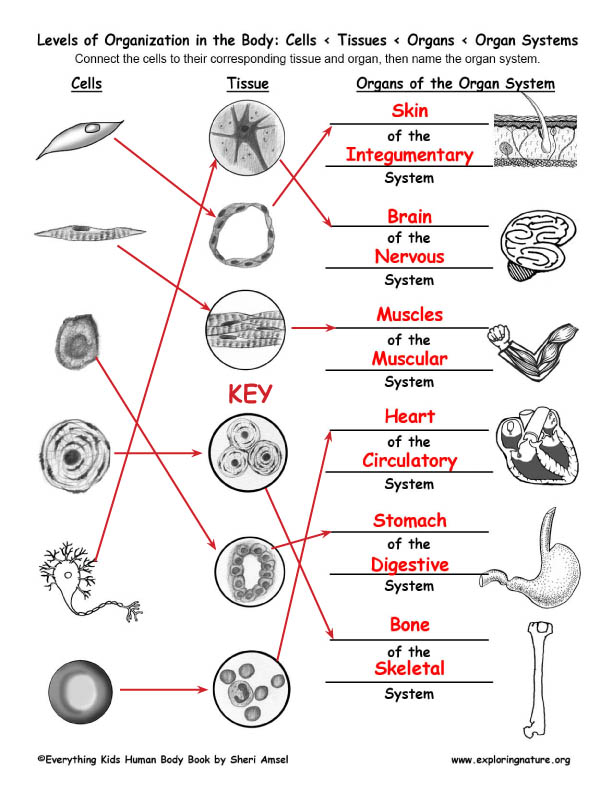


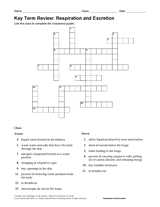
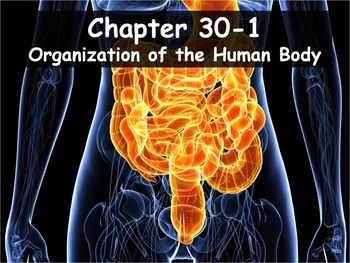
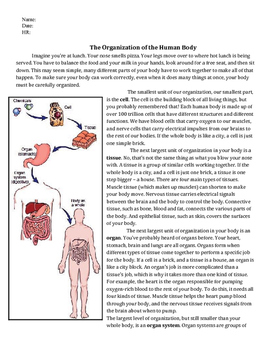



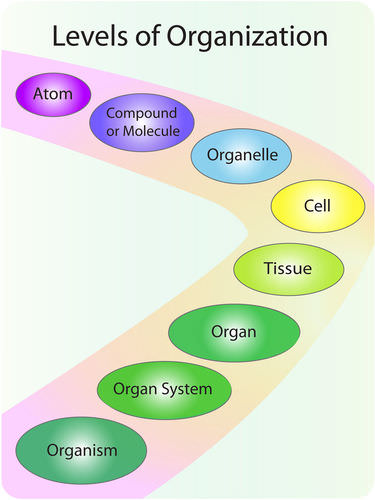
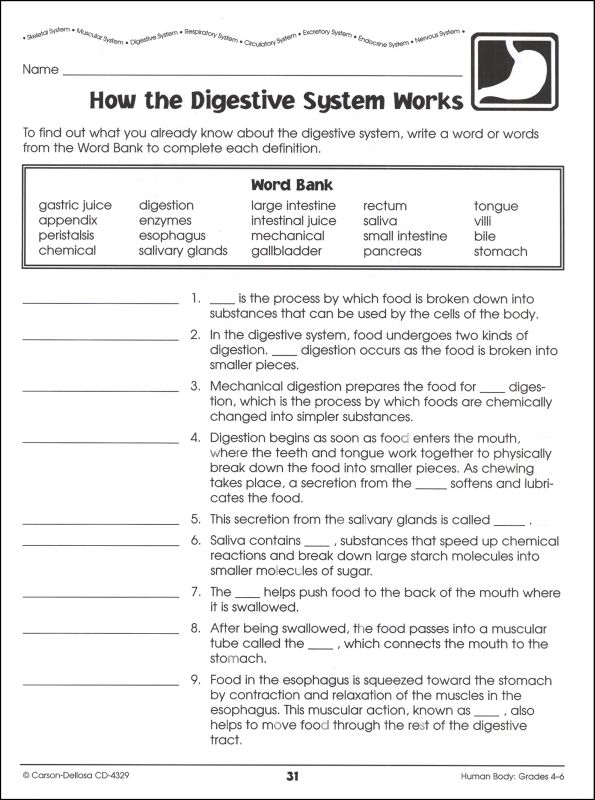


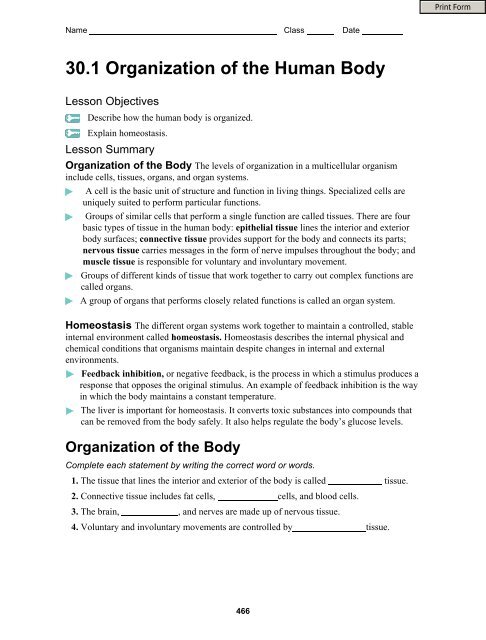
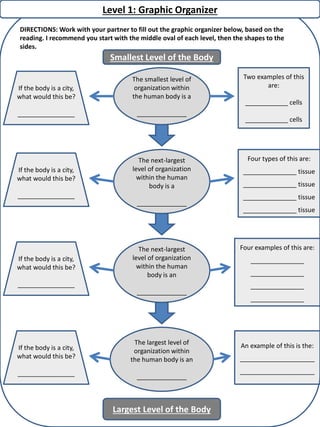


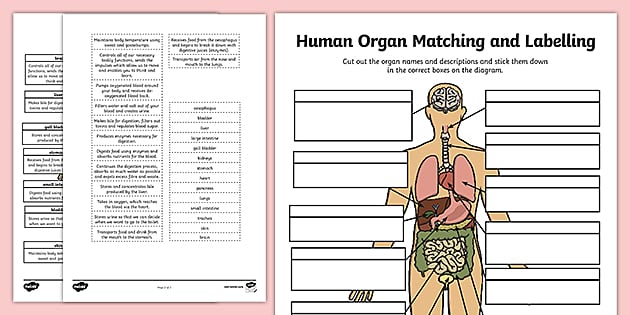
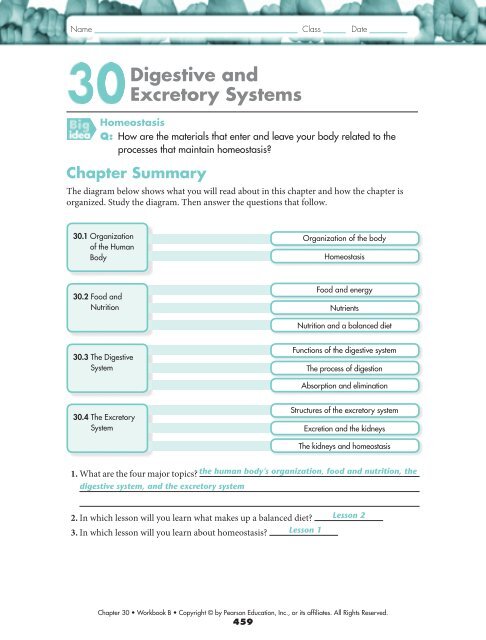







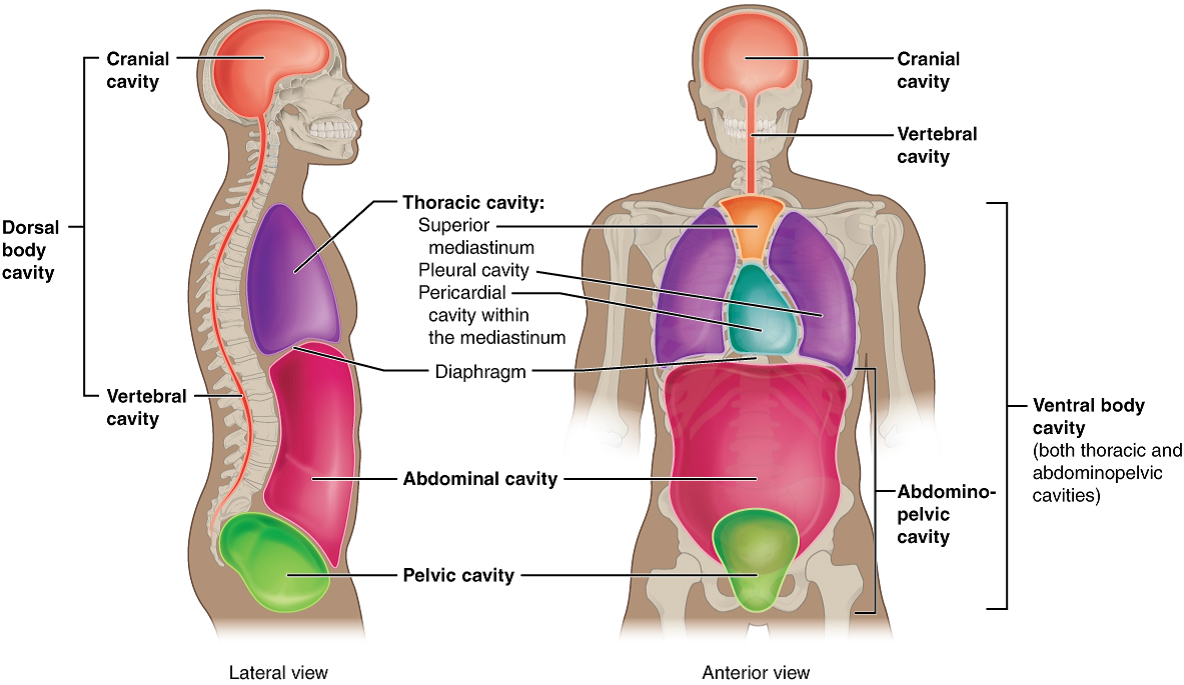
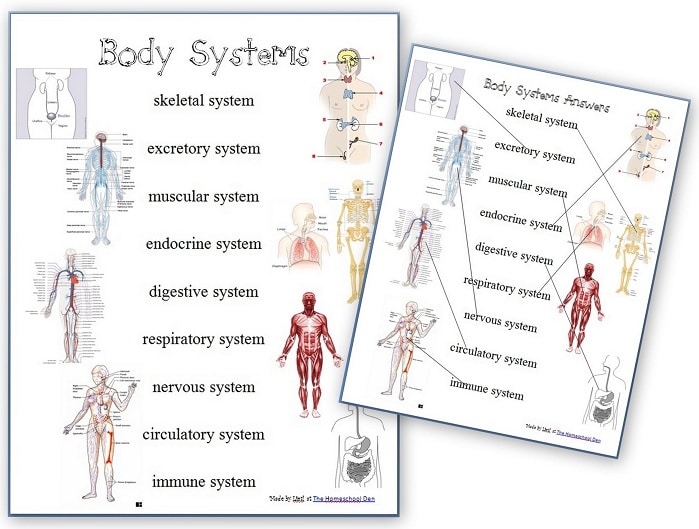

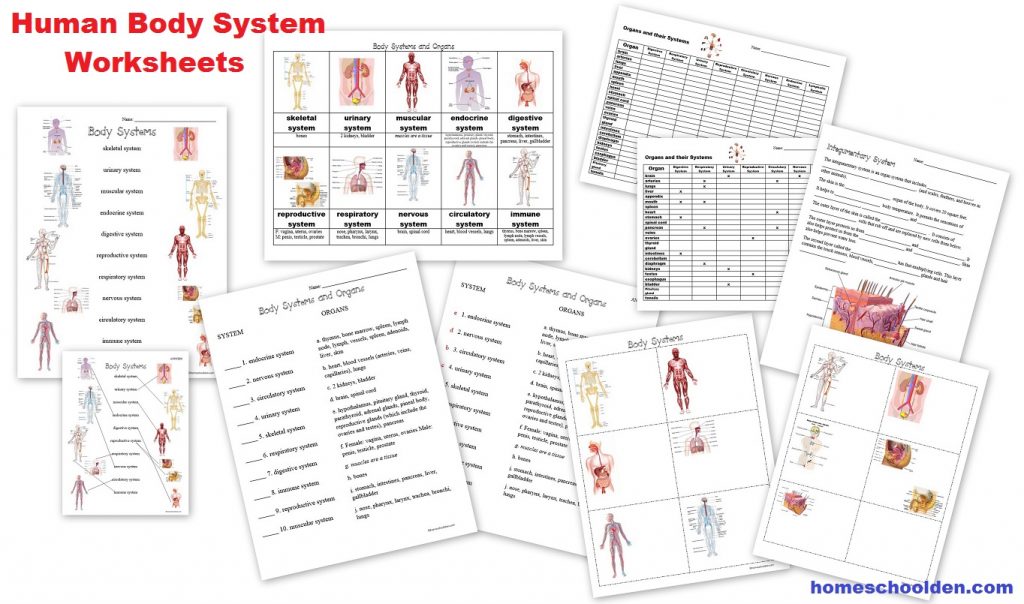





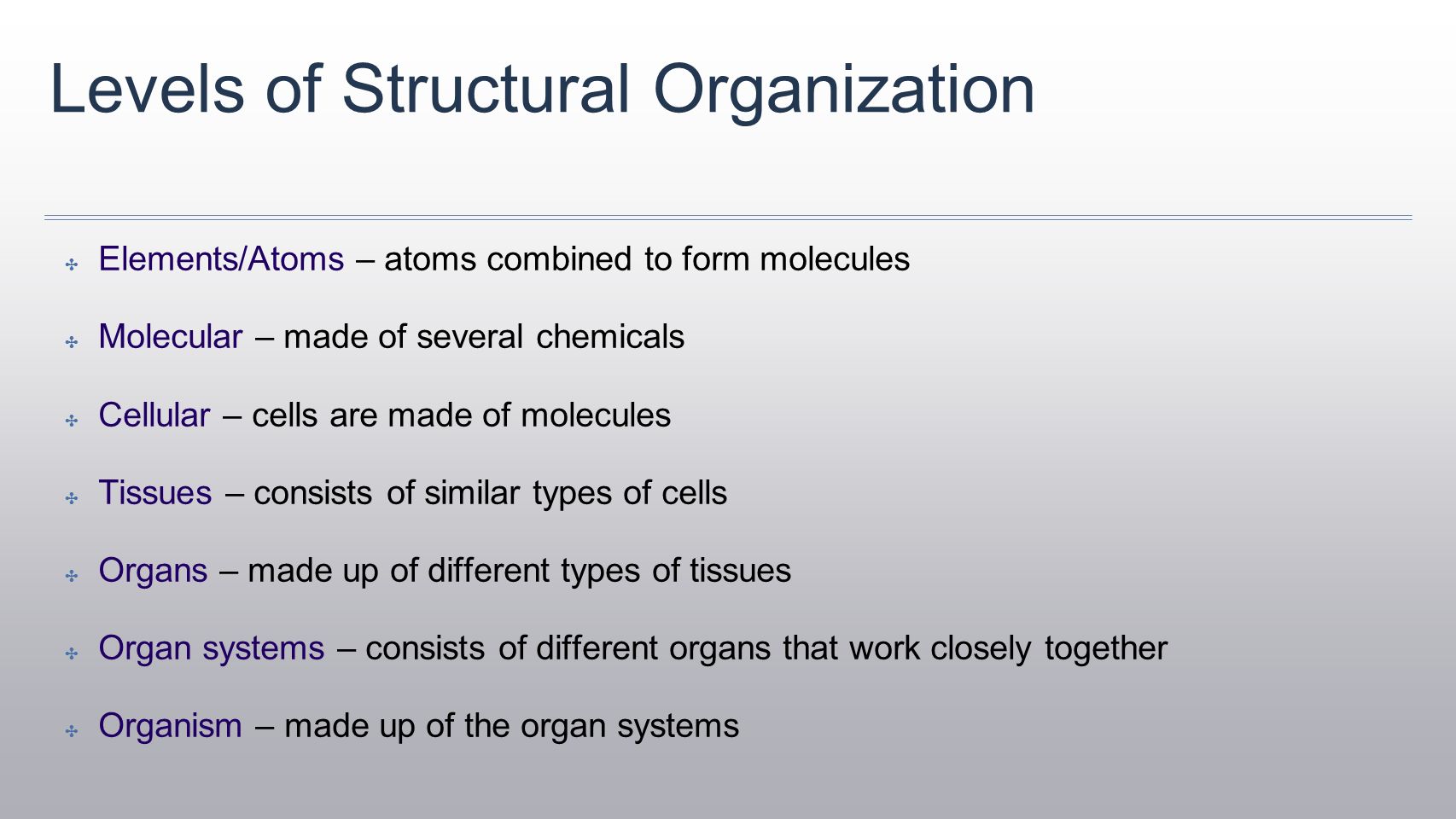
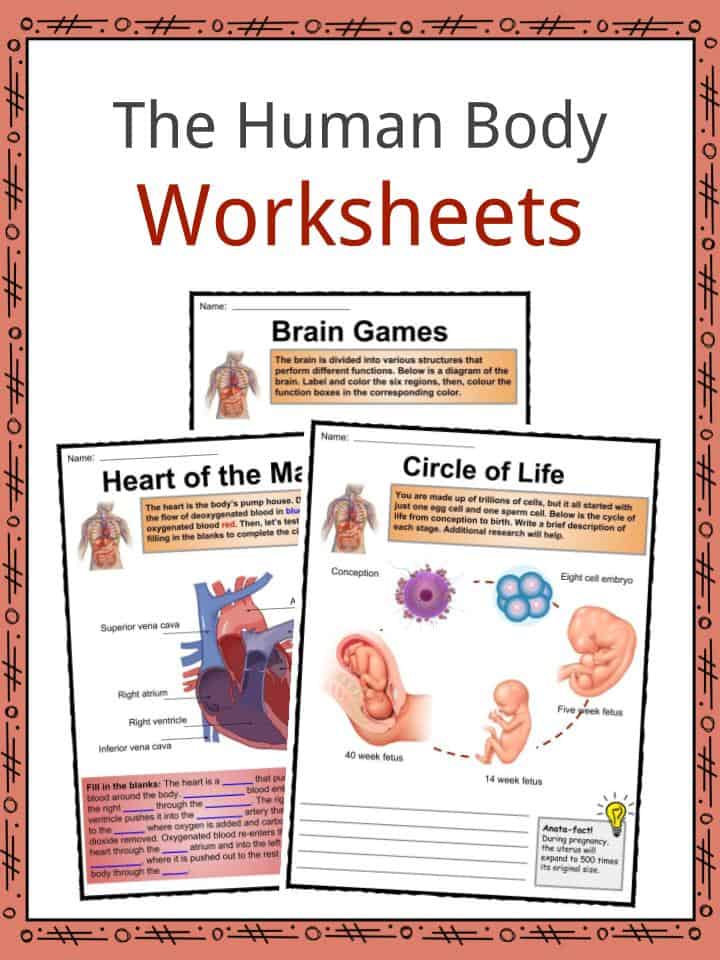
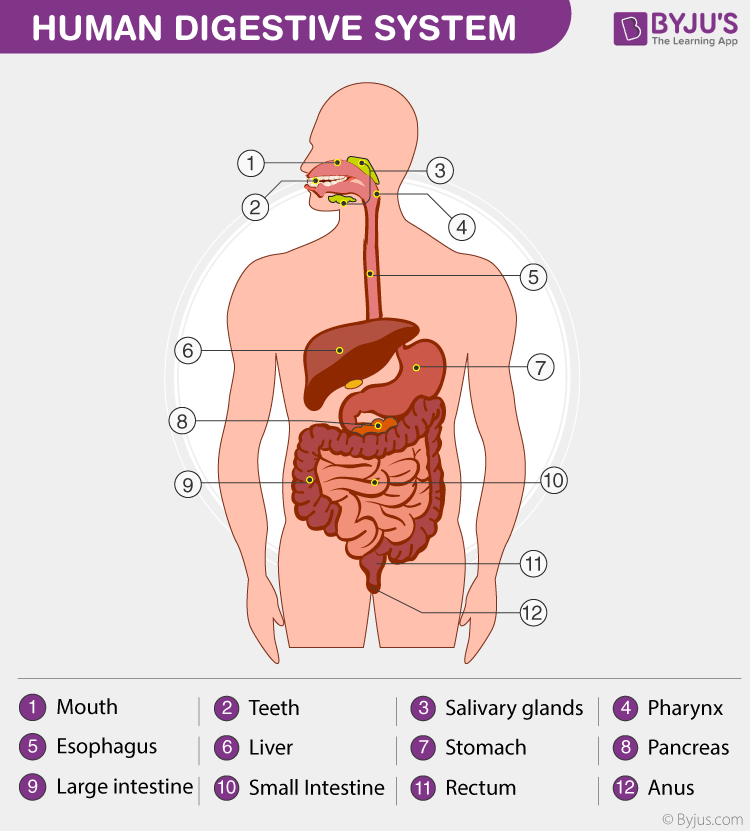

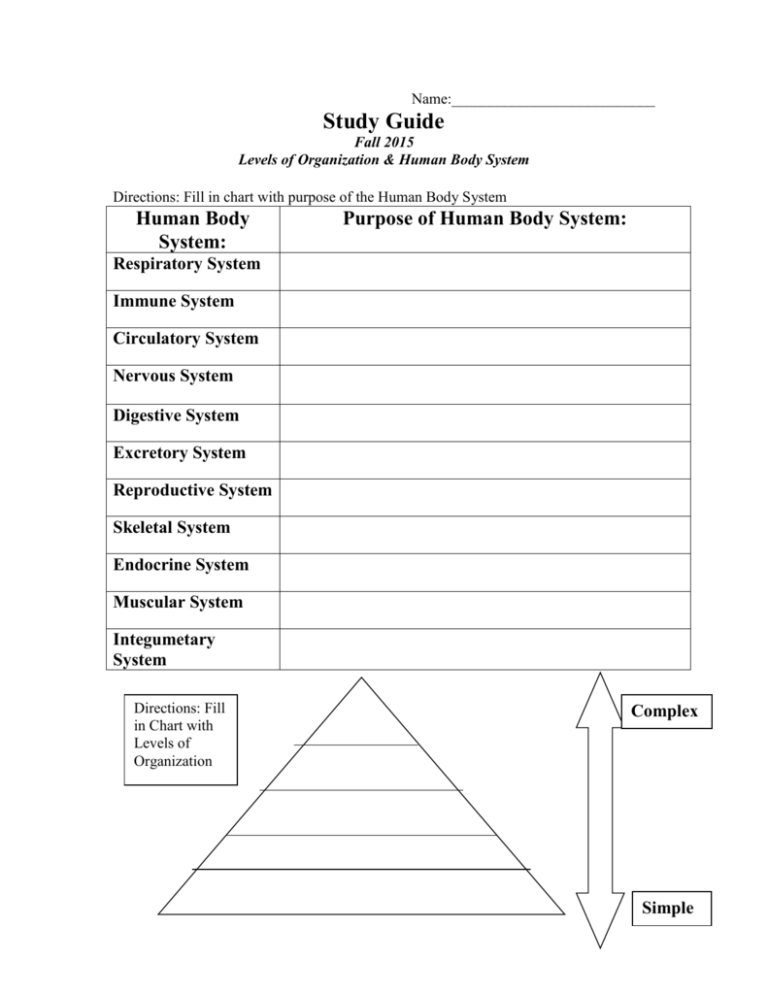
0 Response to "44 organization of the human body worksheet answers"
Post a Comment